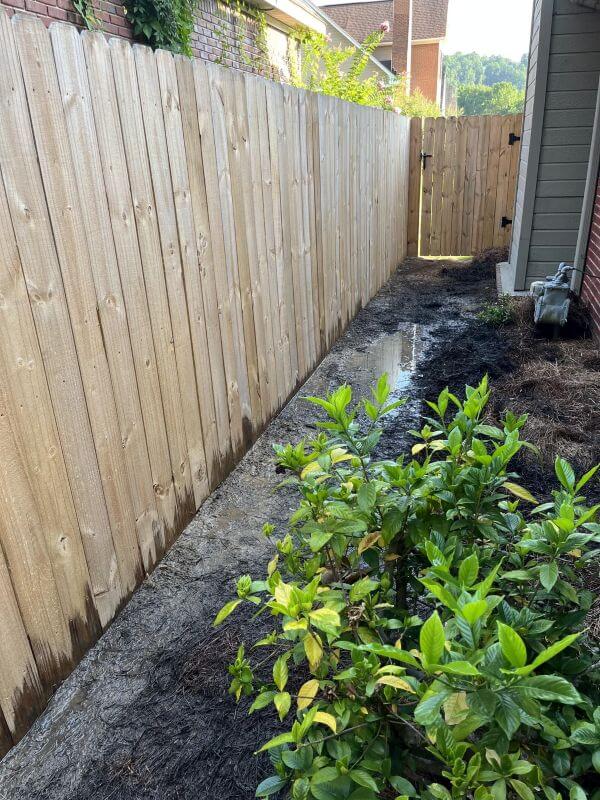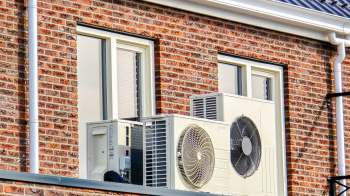Yard seepage is a significant problem for many homeowners. Poor drainage, pipe leaks, and high groundwater levels often cause these persistently damp and flooded areas.
But if the seepage flows from your neighbor's yard to yours, dealing with the issue becomes more complicated.
In a Reddit post to r/landscaping, one homeowner asked for advice about handling drainage flowing across property lines.

The OP wrote in the photo caption, "How to prevent neighbor's seepage? Comes from their high ground and seeps into my side yard after it rains."
A soggy yard like this one is not only unattractive and an eyesore but also a health and environmental concern.
When water collects near the foundation of a home, it can lead to mold or ruin the soil. Seepage can also compromise your home's structural integrity and cause you to spend money on costly repairs.
Fortunately, there are some effective ways to handle yard seepage, and you can work with your neighbors to find a mutually acceptable solution.
Preventing seepage after rain may require regrading a yard by adjusting the slope to redirect water. The neighbor may need to install a drainage system to collect and channel water away. They may also need to install and maintain gutters or fix leaking pipes to repair damaged underground plumbing.
Another option is to plant a rain garden filled with deep-rooted, native plants. Rain gardens absorb rainwater and prevent runoff and pooling. They direct water away from homes and into drainage systems, adding natural color, beauty, and habitat biodiversity to outdoor spaces.
🗣️ What's the hardest thing about taking care of your yard?
🔘 Mowing the lawn 🏡
🔘 Controlling weeds 🌿
🔘 Keeping pests at bay 🐿️
🔘 I don't have a yard 🤷
🗳️ Click your choice to see results and speak your mind
Reddit users warned the OP that this kind of seepage would likely rot out their fence, recommending gutters and a French drain. They also suggested talking to the neighbor or the HOA about the issue and consulting the city or county to learn about rules regarding runoff between properties.
TCD Picks » Upway Spotlight
💡Upway makes it easy to find discounts of up to 60% on premium e-bike brands
One commenter advised, "Many cities have ordinances against neighbor's drainage aimed into other people's property."
"A gutter and proper drainage lines should solve this," another wrote. "It may be time to talk to your neighbor, and if you're feeling generous, offer to pay half for the installation."
Someone else suggested, "If it's an area you use often, consider installing some water-loving plants as well, such as iris."
Join our free newsletter for easy tips to save more and waste less, and don't miss this cool list of easy ways to help yourself while helping the planet.













